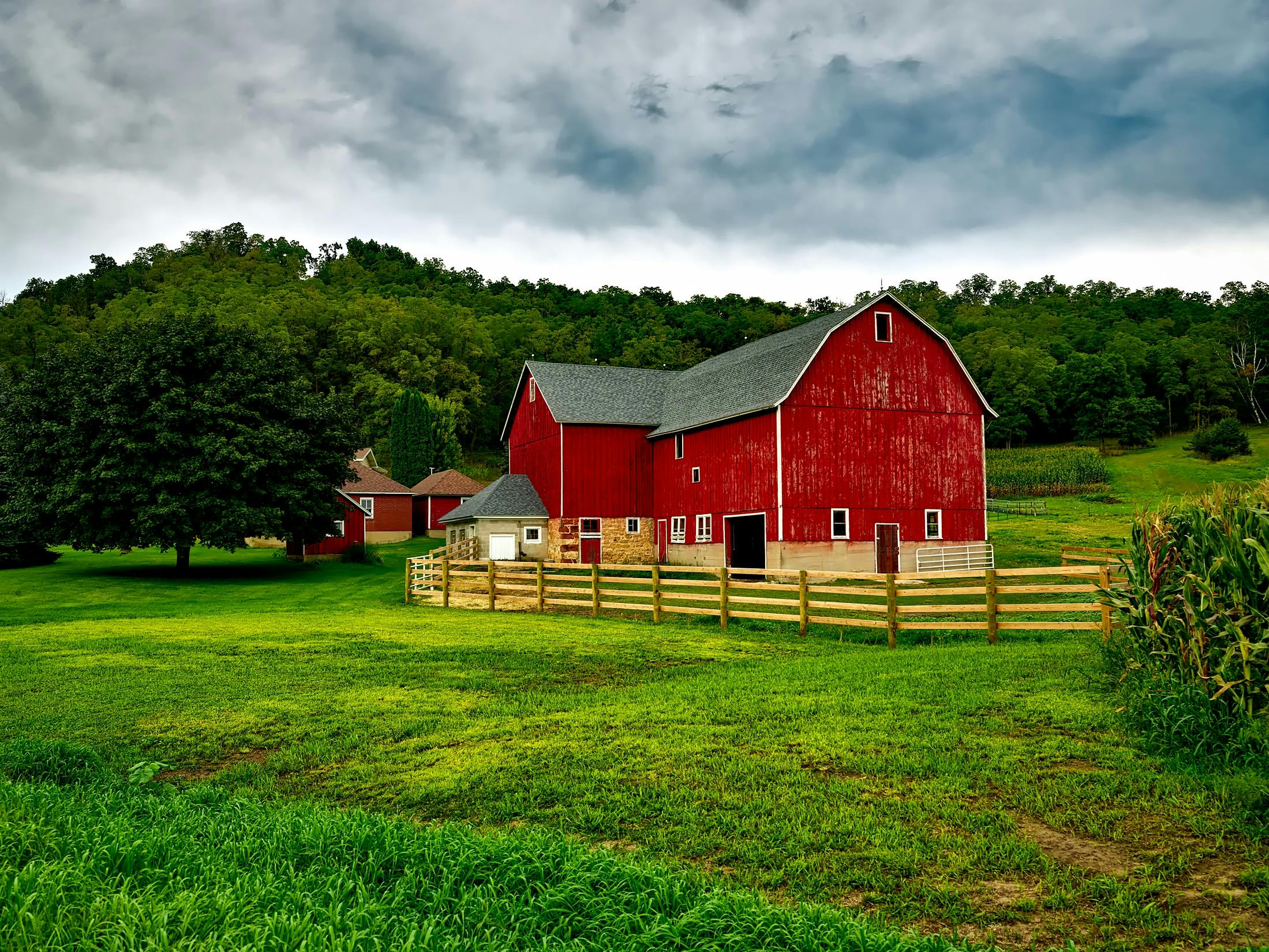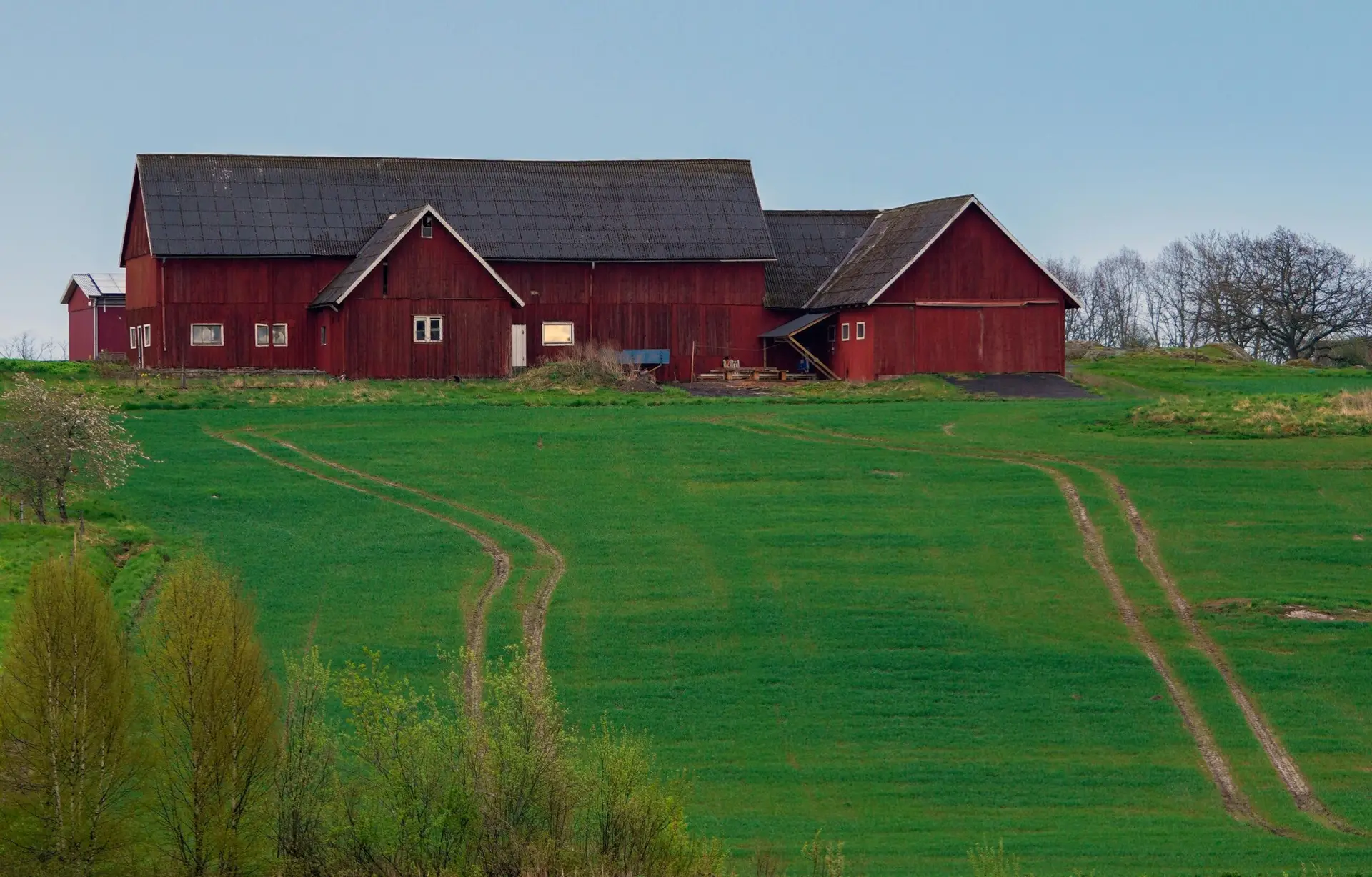Hobby farming has become a popular lifestyle choice, offering a harmonious balance between rural living and self-sustainability. However, the costs associated with running a small farm can quickly add up. If you are looking for ways to generate income while still enjoying the joys of hobby farming, there are several strategies you can implement. Below, we explore seven lucrative methods to turn your hobby farm into a sustainable source of income. 1. Maximize Your Farm’s Profit Through Farmers Markets Selling fresh produce at local farmers’ markets is an excellent way to transform your garden’s surplus into a steady income stream. Farmers markets have become popular as more consumers seek organic, locally-grown products. You can cultivate your farm’s unique offerings into a profitable enterprise with the right approach. To succeed: By understanding market trends and setting competitive prices, you can build a loyal customer base that returns week after week for your farm-fresh goods. 2. Leverage Egg Sales for Recurring Income Egg production can be a dependable and profitable enterprise for hobby farmers. Chickens, ducks, and even quails provide a steady supply of eggs, which can be sold directly to customers or at local markets. Farm-fresh eggs are highly desirable, often selling at premium prices due to their superior taste and nutritional benefits compared to store-bought eggs. Steps to increase your egg sales: Selling eggs is not only a way to generate income but also a method to increase visibility for your farm. 3. Host Farm-Based Events and Weddings Rural and rustic venues are in high demand for weddings, corporate events, and private gatherings. Hobby farms, with their scenic landscapes and authentic charm, are the perfect backdrop for those seeking a unique location. To maximize this opportunity: Weddings and events not only provide financial benefits but also elevate the visibility and reputation of your farm in your community. 4. Start a Petting Zoo with Farm Animals If you have animals such as goats, ponies, or rabbits, creating a petting zoo can be a fun and profitable way to utilize your hobby farm. Petting zoos are popular attractions at festivals, birthday parties, and tourist destinations. How to get started: A mobile petting zoo that travels to customers can increase your reach and create a more convenient option for busy parents planning parties. 5. Capitalize on Agritourism Opportunities Agritourism is an emerging trend where tourists visit working farms for educational or recreational experiences. By opening your farm to visitors, you can offer hands-on experiences, farm tours, and workshops. Options to explore: Agritourism can help you generate income while fostering a greater connection between your farm and the surrounding community. 6. Create and Sell Homemade Farm Products If you have a knack for crafting or culinary skills, homemade products can be a significant source of income. From candles and soaps made from goat milk to artisanal cheeses and preserves, there is a wide range of products you can create with resources from your farm. Suggestions for products: Selling homemade goods not only adds value to your farm’s output but also opens new markets through online platforms and local stores. 7. Raise Bees for Honey and Pollination Services Beekeeping is a rewarding hobby that can generate multiple streams of income. In addition to selling honey, you can provide pollination services to local farmers or sell beeswax for making candles or cosmetics. To succeed: By diversifying your income through beekeeping, you can take full advantage of the many benefits bees offer. Conclusion Your hobby farm offers a wealth of opportunities to generate income while enjoying the tranquility and satisfaction of rural life. From selling fresh produce and eggs to hosting farm-based events and creating value-added products, the profit potential is only limited by your creativity and dedication. By focusing on these seven strategies, you can offset the costs of maintaining your farm while creating a thriving business that brings joy to you and your community. By implementing these ideas, your hobby farm can become both a peaceful sanctuary and a profitable enterprise.
The Comprehensive Guide to Farmhouse vs City Lifestyle
Introduction The rapid pace of urbanization has led many to migrate to cities in search of better job prospects, education, and a modern lifestyle. However, this transition often comes with a significant compromise on the quality of life, primarily due to pollution, stress, and a lack of connection with nature. Conversely, life in the countryside, especially in farmhouses, offers a refreshing alternative that promises tranquility, health, and a closer bond with the natural world. The Drawbacks of City Life Pollution and Health Issues City life is synonymous with pollution—air, noise, and light pollution are rampant. The high concentration of vehicles, industrial activities, and dense population contribute to the deteriorating air quality, which poses severe health risks such as respiratory problems, cardiovascular diseases, and mental health issues. Noise pollution disrupts sleep patterns and increases stress levels, while light pollution affects natural sleep cycles and overall well-being. The Stress of Urban Living Urban dwellers often find themselves in a relentless race against time. The daily grind involves long commutes, extended working hours, and a hectic lifestyle that leaves little room for relaxation or personal time. This constant hustle leads to chronic stress, burnout, and a diminished quality of life. The lack of green spaces and recreational areas in cities exacerbates this issue, depriving residents of the calming and restorative benefits of nature. Social Isolation Despite being densely populated, cities can be isolating. The fast-paced life, individualistic culture, and digital interactions often replace face-to-face connections, leading to feelings of loneliness and detachment. Community bonds are weaker in urban settings, as neighbors rarely interact, and social gatherings become less frequent. The Allure of Farmhouse Living Connection with Nature Living in a farmhouse places you at the heart of nature. Surrounded by greenery, fresh air, and open spaces, farmhouse life offers an immersive experience with the natural world. This connection fosters a sense of peace and contentment, promoting mental and emotional well-being. Studies have shown that spending time in nature reduces stress, enhances mood, and improves cognitive function. Health Benefits Farmhouse living provides access to organic, home-grown produce, ensuring a healthier diet. The physical activities involved in maintaining a farmhouse, such as gardening, walking, and outdoor chores, promote a more active lifestyle. The clean air and reduced pollution contribute to better respiratory health and overall physical well-being. Slower Pace of Life One of the most significant advantages of farmhouse living is the slower, more relaxed pace. Away from the urban rush, residents can enjoy a more balanced life with ample time for hobbies, family, and personal growth. This slower pace reduces stress levels, enhances life satisfaction, and improves mental health. Strong Community Bonds In rural settings, community ties are stronger. Neighbors know each other, social interactions are more frequent, and a sense of camaraderie prevails. This close-knit community structure provides emotional support, security, and a sense of belonging, enhancing the overall quality of life. Divine Orchards: A Paradigm of Farmhouse Living Divine Orchards offers a unique farmhouse project, located near Islamabad Air Port. This project aims to revive the ancient Vedic forest science, creating an ecosystem where nature and modern living coexist harmoniously. Themed gardens, organic farming, and sustainable practices are integral to this initiative, promoting a healthy and eco-friendly lifestyle. Modern Amenities in a Natural Setting Madhuvana seamlessly integrates modern conveniences with the natural environment. Residents can enjoy the comfort of contemporary living while being surrounded by lush greenery and serene landscapes. The project offers various options, from building your own farmhouse to staying in shared cottages, ensuring flexibility and comfort for all. Investment Opportunities Beyond lifestyle benefits, investing in Madhuvana’s farmhouses presents a lucrative opportunity. The growing demand for eco-friendly living spaces and the strategic location near Bangalore make these properties valuable assets. The emphasis on sustainability and nature conservation adds long-term value to the investment, aligning with global trends towards greener living. The Future of Farmhouse Living Technological Advancements The expansion of network connectivity to remote areas has made it possible to work from farmhouses, blending professional commitments with a serene lifestyle. The rise of remote work and digital nomadism has increased the appeal of countryside living, offering a balanced life without compromising on career goals. Environmental Impact Choosing farmhouse living contributes to environmental sustainability. Reduced pollution, conservation of natural resources, and promotion of biodiversity are significant benefits. Projects like Madhuvana are at the forefront of this movement, advocating for a lifestyle that respects and nurtures the planet. Conclusion The contrast between city life and farmhouse living is stark. While urban areas offer convenience and opportunities, they come with significant drawbacks that affect the quality of life. Farmhouse living, exemplified by Vanatvam’s Madhuvana project, presents a compelling alternative that promises health, happiness, and harmony with nature. Embrace the shift to a greener, more fulfilling lifestyle and rediscover the joys of living in sync with nature. By opting for a farmhouse lifestyle, you are not just choosing a home but embracing a philosophy that values health, community, and the environment. Vanatvam’s Madhuvana offers the perfect blend of tradition and modernity, making it an ideal choice for those looking to escape the chaos of city life and immerse themselves in the tranquility of nature.
Benefits Of Living In a Farmhouse
Introduction In an era marked by rapid urbanization and the relentless pace of city life, the appeal of farmhouse living has become increasingly compelling. The concept of retreating to a serene, natural environment where one can escape the daily grind is not only attractive but also beneficial to mental and physical well-being. This article delves deeply into the myriad advantages of farmhouse living, offering a comprehensive overview that underscores why this lifestyle choice is gaining traction. Tranquility and Peace: A Haven from Urban Chaos Farmhouses are typically nestled in rural areas, far removed from the incessant noise and congestion of urban environments. This geographical detachment translates to a lifestyle imbued with peace and tranquility, allowing residents to unwind and de-stress. The psychological benefits of such an environment are profound, reducing stress levels and promoting overall mental health. Fresh and Clean Environment: Breathing Life into Health One of the standout benefits of farmhouse living is access to unpolluted air. The rural settings of farmhouses are synonymous with cleaner, fresher air, significantly contrasting with the smog and pollutants typical of cities. Breathing cleaner air can improve respiratory health and a better mood, contributing to a more vibrant and healthy lifestyle. Space and Privacy: Enjoying Abundant Room to Grow Farmhouses are often situated on expansive plots of land, providing ample space for various activities and ensuring privacy. This spaciousness is ideal for families, offering children plenty of room to play and explore safely. The privacy afforded by a large property also means fewer disturbances and a greater sense of security. Connection with Nature: Reaping the Rewards of Rural Living Living in a farmhouse fosters a closer connection with nature. This proximity allows for opportunities such as growing one’s food, ensuring fresh produce, and instilling a sense of accomplishment and self-sufficiency. Engaging with nature through gardening, hiking, or simply enjoying the scenic beauty around the farmhouse can significantly enhance one’s appreciation for the environment and lead to a more sustainable lifestyle. Lower Cost of Living: Economic Benefits of Rural Life Contrary to the high cost of living in urban areas, farmhouse living can be economically advantageous. Property, utilities, and general living expenses are often lower in rural areas. Additionally, the potential to grow one’s food and reduce dependency on commercial goods can further decrease living costs, making farmhouse living a financially sound choice. Sense of Community: Building Stronger, Supportive Relationships Rural communities are often characterized by their close-knit nature. Living in a farmhouse within such a community can foster strong relationships and a supportive network. This sense of community is invaluable, offering emotional support, shared resources, and a collective sense of belonging. Engaging with neighbors and participating in community events can enrich one’s social life and create lasting bonds. Conclusion Farmhouse living offers a unique blend of peace, health, space, and community that is increasingly rare in our fast-paced, urban-centric world. By embracing this lifestyle, individuals can enjoy a more serene, healthy, and fulfilling life, deeply connected with nature and supported by a strong community. As more people seek respite from urban pressures, the allure of farmhouse living is set to grow, heralding a return to simpler, more meaningful living.
Importance of Farmhouses in Busy Life
In today’s fast-paced and chaotic urban environment, the allure of a farmhouse has never been stronger. The importance of owning or retreating to a farmhouse can be summarized by its numerous physical, mental, and emotional benefits. Here’s a comprehensive look at why a farmhouse can be a sanctuary in the busy life. 1. Connection with Nature A farmhouse offers an immersive experience with nature. Surrounded by greenery, fresh air, and often a variety of plants and animals, this environment allows one to reconnect with the natural world, promoting relaxation and reducing stress. 2. Improved Health and Well-being Living or spending time at a farmhouse can significantly improve one’s physical health. Access to fresh, organically grown fruits and vegetables ensures a healthier diet. Moreover, the tranquil environment helps reduce anxiety, improve sleep quality, and enhance overall well-being. 3. Escape from Urban Stress City life is synonymous with hustle and bustle, noise, and pollution. A farmhouse offers a stark contrast with its serene and peaceful surroundings. This escape from the urban chaos can help individuals recharge, find peace, and regain balance in their lives. 4. Quality Family Time A farmhouse can be an ideal setting for quality family time. Away from the distractions of city life, families can engage in various outdoor activities together, fostering stronger bonds and creating lasting memories. 5. Potential for Sustainable Living Farmhouses often provide the opportunity to engage in sustainable practices such as growing your food, composting, and using alternative energy sources. This not only reduces one’s carbon footprint but also promotes a more eco-friendly lifestyle. 6. Investment and Additional Income Besides the personal benefits, owning a farmhouse can also be a lucrative investment. It can serve as a vacation rental or a venue for events, generating additional income while still providing a personal retreat. 7. Slower Pace of Life The countryside life offered by a farmhouse is inherently slower and more relaxed. This slower pace allows for a more mindful way of living, where one can enjoy the simple pleasures of life without the constant rush that characterizes city living. In conclusion, the importance of a farmhouse in today’s busy life cannot be overstated. It serves as a haven that promotes health, relaxation, and quality family time while offering opportunities for sustainable living and potential income. As the demands of urban life continue to grow, the farmhouse stands out as a valuable asset for achieving a balanced and fulfilling lifestyle.




